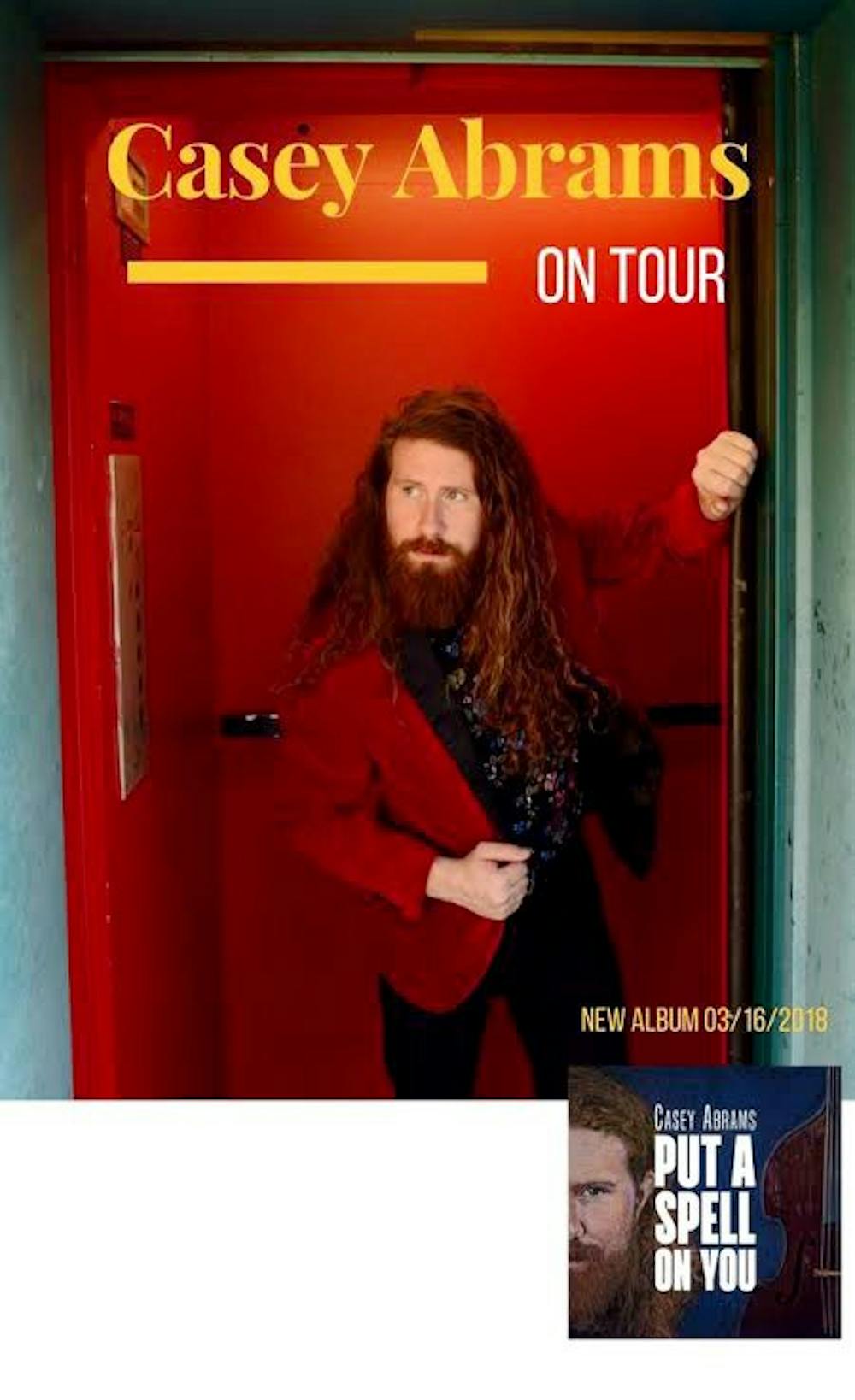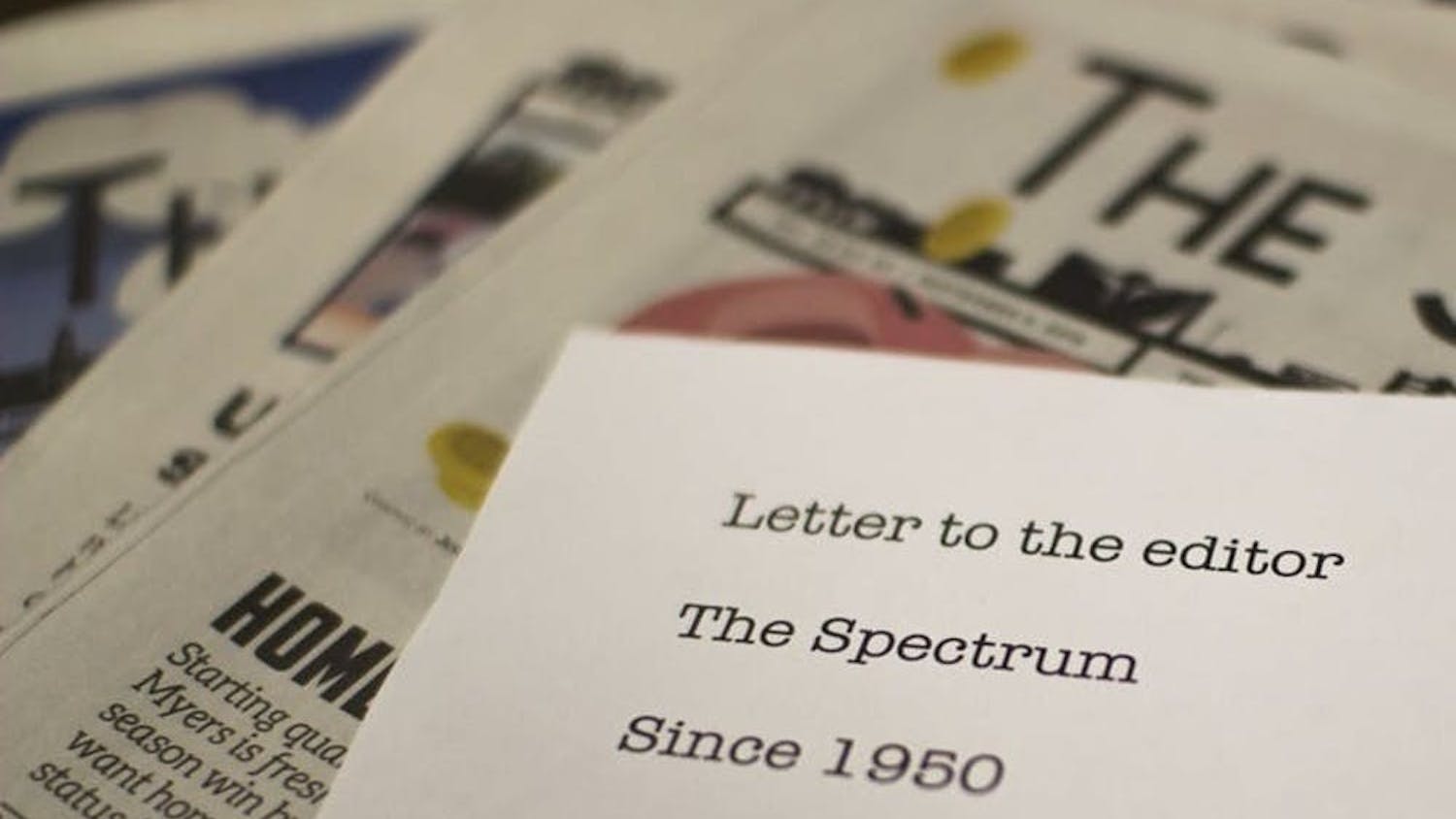The world knew Casey Abrams was different when he stepped onto the “American Idol” Hollywood stage with an upright bass.
Through his journey on “American Idol” in 2011, Abrams came off as different and his incorporation of jazz and soul continues to separate him from his peers.
Abrams is an integral part of Postmodern Jukebox, the music collective known for its soulful renditions of modern pop and rock songs. Abrams is featured in PMJ’s covers of “Stacy’s Mom,” “Umbrella” and even Charlie Puth’s “Attention,” incorporating his flavorful bass and raspy pipes. His work with the group brings in millions of views, a testament to Abrams’ funkiness and ability to encompass swing and tasteful vocal strain in every bit of his work.
The bassist-singer is set to release a brand new record on March 16, “Put a Spell on You,” featuring covers of classics like “Georgia On My Mind” and originals straight from his mind.
Abrams will take the stage at Babeville on March 17 and he’s bringing his bass with him.
Q: Before we get into any questions about your current projects, I want to bring up a little gem from the past. Back in the “American Idol” days, I sent you a letter in the mail with a short “interview” attached which you responded to. I must’ve been about 12. I think that makes you my first interview. Clearly, or at least hopefully, a lot has changed for me since then. What’s been the biggest change in your life in these last few years?
A: You were 12 back then? Dude, thanks a lot. Since then, I think I’ve chilled out more. When you’re on a TV show in front of millions of people and there’s an audience filled with people, everyone’s looking at you and there’s famous judges that are looking at you. It builds confidence. When you’re up there, you’re scared because everyone’s looking at you. You have to get over that. I learned how to deal with being scared of everything –– not even music –– but [going into] social situations or any kind of situation with confidence knowing that I’ll make it through. That’s what’s changed the most.
Q: On “American Idol,” you were the guy who brought jazz to the stage. You weren’t afraid to experiment and make it your own. You even completely ignored the advice of record producer Jimmy Iovene who tried to steer you away from jazz. Would you say this idea of straying away from the norm stuck with you throughout your career?
A: Yeah, that’s all my records I put out. It’s always a little different. [My new record] was recorded in a giant abandoned church and we were singing to a mannequin that had microphones in its ears. I like to stray away from the normal and try new things.
Q: My favorite Casey Abrams cover on “American Idol” was “Georgia On My Mind.” It still blows me away when I listen back. I’m stoked to see a studio version on your upcoming record. What led you to incorporate all these covers on the new record?
A: Being on [“American Idol”], I never actually put out official versions of those covers. So I figured why not do it seven years later? I’ll always have YouTube to look back on all the songs we did [on “American Idol”] but why not try a studio version of the song if a lot of people ask me about it?
Q: Now you’re at this place where you’re performing with Postmodern Jukebox and putting out jazz records. Is this where you want to be?
A: Yes. I mean, I love all types of music and as long as I’m performing and creating new things music-wise, I’m very happy. I constantly write every day. I’m writing new songs no matter what. And maybe in a year, you’ll hear something completely new and funkier. Maybe, I’ll put out a polka record at some point. And at the moment I’m very happy because I get to tour with Postmodern Jukebox, make videos with them and I get to do my own thing; tour by myself. I’m very happy about it.
Q: Last time you were at UB with Postmodern Jukebox, you recorded a “Hippie Swat Man” video outside. Do you think film and comedy are things you’d like to incorporate in your craft?
A: Oh my God, I remember that. … Yes. I’m actually going to take a couple acting classes and I’m constantly looking out for casting calls and all that stuff. But I still have “Hippie Swat Man” season 2 to put out on YouTube. ... We haven’t finished it. I’m going to find out how to end it, then I’m going to put up the second season.
Q: You’re coming back to Buffalo on March 17, the day after your album release. Besides playing your own music and all the technical differences, what separates a solo Casey show and a PMJ show?
A: In a solo Casey show, I’m on stage pretty much the whole time. And there are usually a little less people on stage for my show. In my show, I don’t really have a set list. I just kind of go with the flow and play songs.
Q: Do you ever have people shout out requests?
A: Yeah. Sometimes I’ll do it and it fits perfectly with what I want to do next. Sometimes I’ll be like, “OK, I’ll do a jazz song” in my mind and someone would be like, “Play ‘Nature Boy!’” And then sometimes I’ll say “no” or “maybe later” and I’ll never do it.
Q: Are you thankful for the recognition your covers get and do you think your originals on the new record can captivate the same cover-enthusiasts who tune into PMJ?
A: Yes. It all breaks down to whether it’s a good song or not and whether or not you’ll listen to it. I believe that a lot of the songs on there, especially “Let’s Make Out” are songs a lot of people can relate to –– like the hornier side of life. I think it can translate. Covers are music as well as originals.
Q: Since you were out there playing the bass on “American Idol” at 19 and making the stage your own, do you think your music now –– especially tracks from “Put a Spell On You” –– is stuff a college-aged crowd could vibe to? What would you say to any fan here at UB who’s hoping to drop by the show?
A: I would say that if you’re a jazz lover or a jazz nerd, you’re going to love the show. Also, if you’re a heavy drinker and a heavy stoner you’ll love the show as well. If you go to the show, you might get messed with. That’s the only warning I’d say. You might have to sing a song. You might have to do a dance. You might get a massage. Who knows?
Tickets for Abram’s Babeville show are $15 in advance and $17 at door.
Brenton J. Blanchet is the senior arts editor and can be reached at brenton.blanchet@ubspectrum.com.
@BrentBlanchSpec

Brenton J. Blanchet is the 2019-20 editor-in-chief of The Spectrum. His work has appeared in Billboard, Clash Magazine, DJBooth, PopCrush, The Face and more. Ask him about Mariah Carey.





